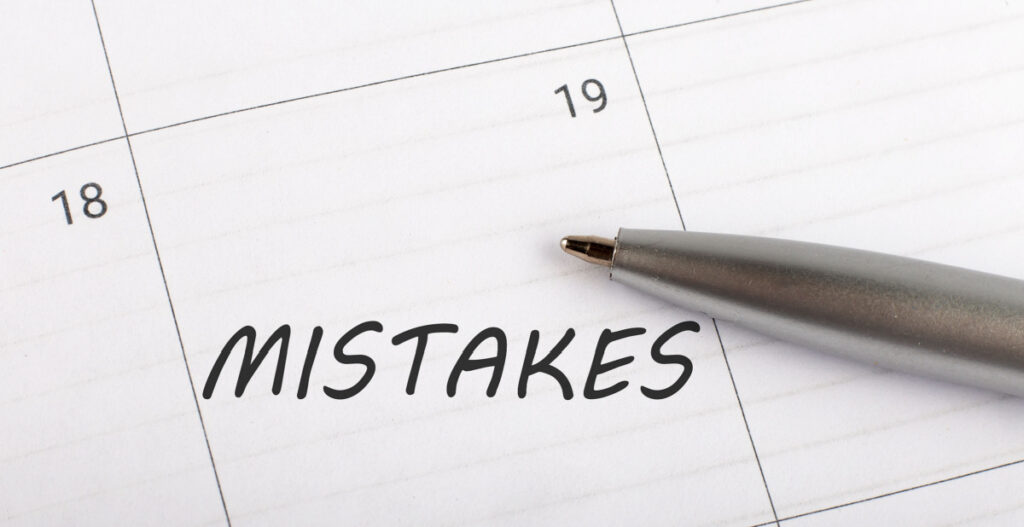How to Avoid Common Hiring Mistakes
|

Hiring plays a crucial role in the success of a company. When you hire well, you avoid turnover, build your culture, and push your business toward your goals. Unfortunately, hiring well isn’t as simple as it sounds.
In our years of experience in the staffing industry, we’ve become pretty familiar with the most common hiring mistakes out there. Luckily, we’ve also learned how to help companies avoid them.
Here are four of the most common hiring mistakes we see, and suggestions on how to fix them.
Mistake 1: Going in without a plan.
Because hiring is so important, it really isn’t something that should be left to chance. Thinking you can just post a basic job ad, wait for responses to roll in, conduct a few interviews, and end up with the ideal candidate, isn’t a very good strategy. Without a detailed hiring plan, we’ve found that the hiring process can be unfruitful, a waste of time, and/or leave you with an employee who isn’t what you really wanted.
How to fix it: Make a plan.
Sound simple? It’s actually not. If you’re going to make a detailed hiring plan, you’re going to have to put some time and effort into it. Start by clearly defining the position, and describing what your ideal candidate looks like. Craft a detailed and careful job ad. Determine a process for screening resumes. Decide how many candidates you’ll screen via phone before inviting them in for an interview. Prep your interview questions. Set a timeline. Including all these things in your plan, plus any details you see fit to add, will save you time and headaches in the long run. Plus, you’ll be more likely to end up with a stellar employee.
Mistake 2: Moving too fast…or too slow.
Some companies are so eager to fill a vacant position that they’ll hire the first seemingly-qualified person to apply. They may even skip important steps in the process, like trial projects or reference checks, in their haste to hire. On the other hand, some companies put off hiring for far too long, waiting for a 100% perfect candidate to fall into their laps.
How to fix it: Don’t compromise. Prioritize.
You should never be so desperate that you’re willing to hire anyone with a decent-looking resume. Don’t compromise when it comes to the process you’ve planned out. If you said you’ll interview the top three candidates, stick to it. If you planned to check references as part of your hiring plan, then check references. Don’t let an impressive candidate throw you off of the careful plans you’ve made. Conversely, you need to recognize that you likely won’t find someone who is 100% fit for the position. To avoid holding out for this unicorn employee, set a deadline and stick to it. Define your priorities (e.g. is it more important that the candidate is technically competent, or that they’re a culture fit?) and make the best decision you can based on those priorities and the candidates you have in front of you.
Mistake 3: Ignoring culture.
Your company culture is what sets your business apart from the rest. It sets the tone for your office, the attitude you have toward your clients, and the approach you take toward challenges and setbacks. Even so, we’ve seen too many companies hire solely based on skill, while ignoring whether or not the candidate will actually fit within their company culture.
How to fix it: Know your culture and hire accordingly.
You can’t take your culture into consideration while hiring if you don’t know what your culture is. Hopefully, you’ve taken the time to build a deliberate culture that reflects your company values. And if that’s the case, then make sure any new hire you make will be a culture fit. At best, someone who doesn’t fit your culture will probably feel like an outsider among their coworkers; at worst, their behavior or attitude could erode the culture you’ve so carefully built.
Mistake 4: Not seeking input.
Different perspectives will only help when it comes to hiring. Other staff members may have ideas about what qualities their new coworker should have or may be able to give some insight into why the departing employee didn’t work out. People within your network may have referrals to send you, giving you a candidate that has the seal of approval from someone you trust. And of course, staffing agencies not only have vast experience with the hiring process, but they also have databases of potential candidates at their disposal.
How to fix it: Get help.
Ask your employees (especially the ones who will be working closely with the new hire) for their input. Put out some feelers in your network. Enlist a staffing agency to take the load off and get the job done right. Don’t try to hire without input from others, or you’ll miss out on additional perspectives and opportunities.
Hiring isn’t a simple process, and we see the same mistakes made over and over again among businesses looking to fill a position. Save yourself time and effort by being aware of these potential mistakes from the beginning, and taking the right steps to avoid them.
Leave a Reply


